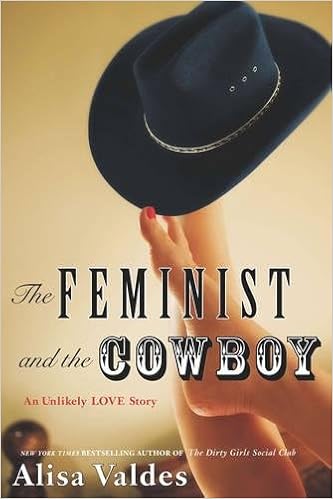How NOT to Write a Memoir
We all have goals that we want to reach in our writing, especially memoirists. There have been times when I want to write about ex-boyfriends because they treated me awful, or because they were so perfect, and always—always!—my writing group would ask me, “But what’s beneath this? What is this really about?” And I would whine and say they didn’t understand, but at the same time I would write into it until I figured it out. It was always about me and how I work, or it was about the relationship I have with my parents or siblings or friends; or it was about how easy it is for me to have a short, passionate, surface-level relationship than it ever has been to sustain a deep and long-term one.
 There are ways to guide your memoir, to nurture it, and there are also some things you should avoid. I recently read the memoir The Feminist and the Cowboy, by Alisa Valdes, because I loved the title and the contradictions and it also sounded like it could be an interesting story. Parts of it were great and eye opening, but other parts annoyed me (as my boyfriend can attest to, since I told him about it every night). So here are some ways not to write a memoir, as learned from this text.
There are ways to guide your memoir, to nurture it, and there are also some things you should avoid. I recently read the memoir The Feminist and the Cowboy, by Alisa Valdes, because I loved the title and the contradictions and it also sounded like it could be an interesting story. Parts of it were great and eye opening, but other parts annoyed me (as my boyfriend can attest to, since I told him about it every night). So here are some ways not to write a memoir, as learned from this text.
- Labels. Examples: My parents are narcissists. All liberals think this, and all conservatives think that. Feminism stole my womanhood.
When you start out a memoir with labels, you probably have an agenda. I don’t think it’s bad for a writer to have an agenda, but if you start out with one, then how can you expect to reach the truth? I thought my stories were about boys, when really they were about family. If I had followed my gut, my stories would have fallen flat because they had yet to reach their full potential. For most of us, an essay is about meandering through our experiences in order to find what feels most right. Slapping a label on a feeling you have will never allow it to reach absolute truth.
- Rose-colored glasses. Example: My boyfriend is perfect and I wrote this while we were dating.
If you think your boyfriend is perfect and you only met him a few months ago, it probably isn’t the best time to start a memoir about your relationship with him. As a journalist, I can attest that people put on smiles and tell you all about how great they are when you first start talking to them. It can take dozens of interviews before you get to hear about their truest feelings, jealousies and desires, the stuff they don’t want to tell everyone. The same thing happens in a romantic relationship, which is why it’s best to give it some time; a few years, maybe.
- Let just one person read it. Example: My boyfriend read over this memoir before publication.
In her memoir, Valdes tells us more than once that the Cowboy leaned over her shoulder while she was writing, but she never mentioned showing it to anyone else in her life. (This memoir is probably more about seclusion and abuse than it is about romance, but we’re going to stick to how not to write a memoir for now.) It is a great idea to let those you’re writing about read your work. You want to gauge their reactions and maybe get permission before the lawsuits come pouring in. You also want to get their side of things, unless it’s a really horrific incident that you just can’t even talk to them about. But I’m not sure the author showed this book to anyone other than the cowboy, which makes a lot of sense because the other people in her life (including herself) sound selfish and annoying, whereas the Cowboy is the only person with any logic and humanity whatsoever.
In the end, here’s my advice if you want to write a memoir, whether it’s essay-length or book-length: Move past labels to get to a deeper and sometimes more complex truth; give the situation some time to breathe so you don’t dive in when everything is perfect and beautiful, because this is a dangerous time to be writing; and if you’re going to let anyone read your memoir before publication, make sure you bring in more than just the one person you’re in love with.
Further words of wisdom: I’ve been told many times that the writer should be the only person to look like an asshole. This means that you should make your very best effort to identify the good qualities of your nemesis, or family members who make you angry; don’t just identify their faults as you see them, but seek out their strengths as well. A compassionate writer will get closer to the truth and is less likely to be sued.
If you have anything to add, please do so below. I’d love to hear your ideas and experiences!
How NOT to Write a Memoir Read More »
